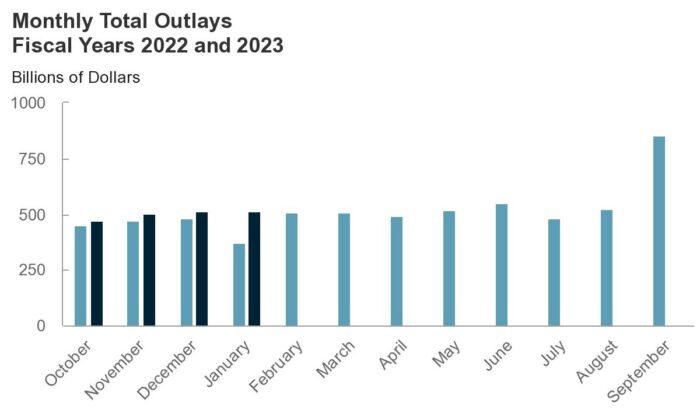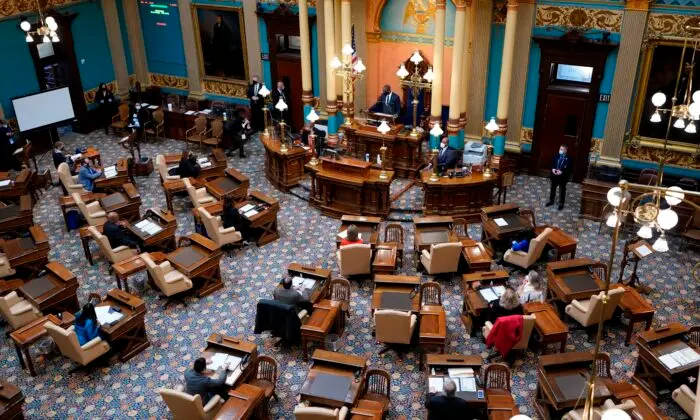The United States accumulated a deficit of $459 billion in the first third of fiscal year 2023, an increase of 77 percent over the previous year. The finding was reported by the Congressional Budget Office (CBO) on Feb. 8.
The deficit would have been even higher if Oct. 1, 2022, the first day of fiscal year 2023, had fallen on a weekday. Because the date fell on a weekend, some 2023 expenses were paid in the previous year.
“If not for those shifts, the deficit would have been $522 billion, double the shortfall during the same period in fiscal year 2022,” the report stated.
The CBO provides nonpartisan analysis of budget matters for Congress. The 2023 fiscal year ends Sept. 30.
The report came one day ahead of the first meeting of the House Budget Committee during the 118th Congress, where Republicans are expected to push for lower spending in the next year.
Years of deficit spending have driven the nation’s debt to nearly $31.4 trillion. House Republicans have made the national debt a focus of early efforts in the new Congress.
House Speaker Kevin McCarthy (R-Calif.) has said he will not consider raising the debt ceiling without some spending concessions by Democrats.
The debt ceiling is the total debt Congress has authorized the government to hold at any one time. That ceiling was nearly reached in January and will be approached again in June, according to Secretary of the Treasury Janet Yellen.
President Joe Biden has accused Republicans of wanting to cut Social Security and Medicare and taking the nation’s economy “hostage” to gain his agreement, which McCarthy denies.
The speaker has repeatedly said that he will not consider cutting the two social programs and that there will be no default on the nation’s financial obligations. McCarthy said he seeks only a “responsible” increase in the debt ceiling, predicated on some spending concessions.





